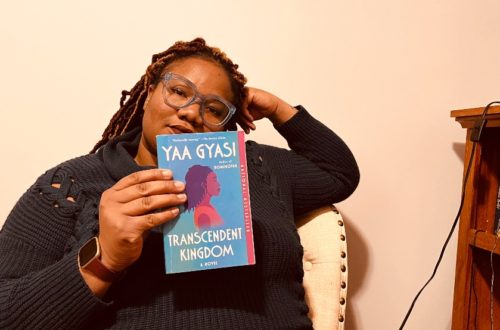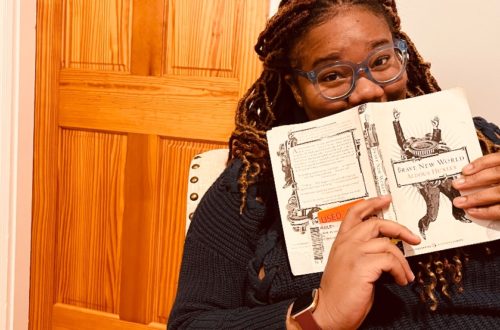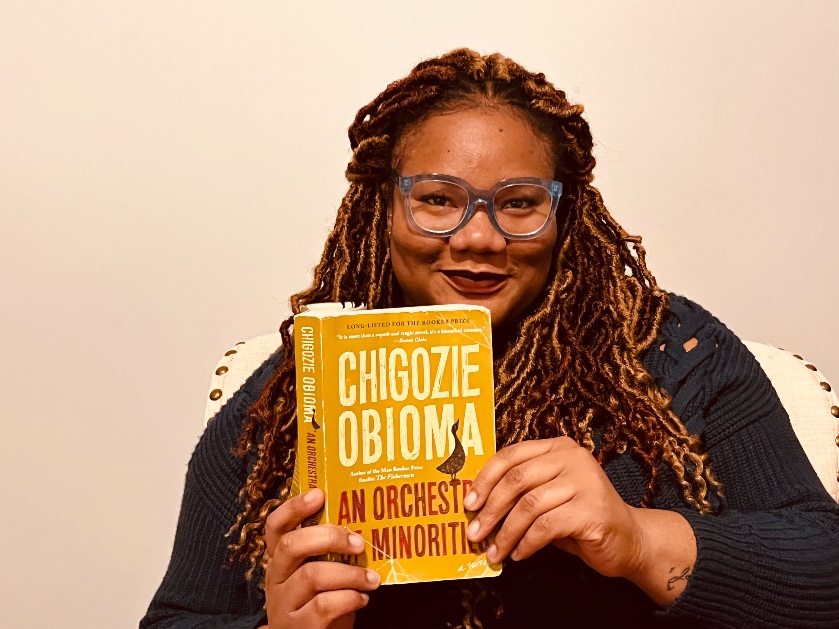
Drey’s Take on Chinonso’s Odyssey in “An Orchestra of Minorities”
I was first drawn to “An Orchestra of Minorities” because of Chigozie Obioma’s name. I had never seen an Igbo name on the window shelves of a book store. I had thought that the name of the book was Obioma’s name, his name is bigger than the name of the book on the front cover. I immediately went into my school’s bookstore and picked up the book to read the synopsis of the book. Imagine my surprise when I read that the story was to be an intricate blend of Igbo spirituality with Greek tragedy. Needless to say, I had to get the book. However, I didn’t read it until a couple of years later.
Chinonso’s Odyssey (Bird’s Eye View)
Chinonso’s chi, guardian spirit, begins Chinonso’s journey on the outskirts of Umuahia, Nigeria. On the way home from purchasing a choice of chickens, Chinonso, a chicken farmer, saves a woman from jumping off a bridge. In order to show the woman, Ndali, the fatal decision she was about to make, Chinonso throws two of his prized chickens into the water below the bridge. Thus begins the story of boy meets girl; girl is from a wealthy family; boy does something foolish to prove himself to girl’s family; boy realizes his mistake and returns to girl; and it ends with a happily ever after–actually, it ends in tragedy. Throw in Igbo traditions, proverbs, and spirituality with the Greek journey of Odysseus and you have An Orchestra of Minorities. But let’s break it down.
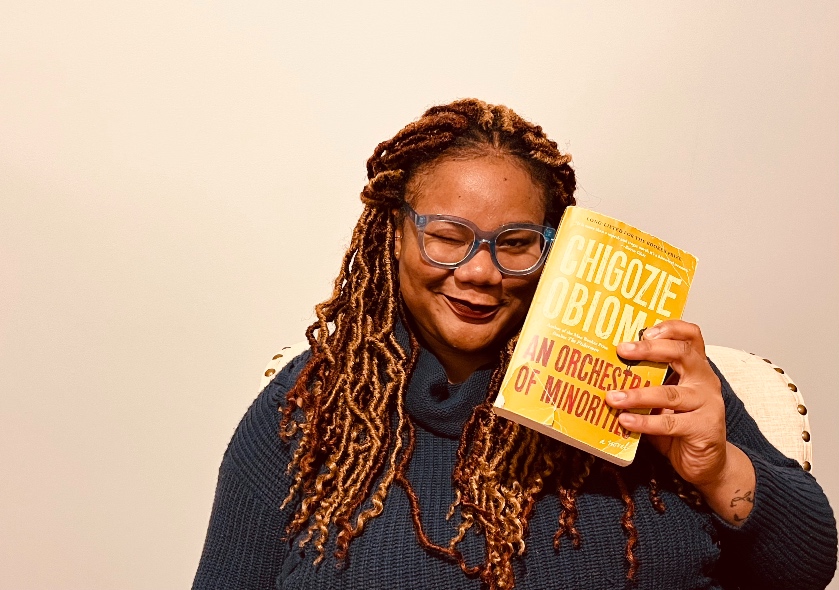
English 101
Because this book borrows from the Greek mythological tradition, I think it would be fun to digest the book as we would have had we been in a high school English class.
Important Characters IMO:
Chinonso
The protagonist of the story, who is a chicken farmer. Has had a tragic life story. Both parents are dead and his sister left him to live with her partner. His uncle worries about his love life and wants him to settle down because he believes that a woman would relieve him of his sorrow. He loves Ndali and would do anything to marry Ndali, which eventually becomes his Achilles heel.
Ndali
The pharmacist in training, who eventually becomes the downfall of Chinonso. She almost took her life when she found out that her boyfriend had married another. She falls in love with Chinonso even though they are from different worlds. Her family does not like Chinonso but she is willing to do anything to stay with him. She urges him not to do anything foolish in the name of proving himself to her family; but, alas, Chinonso leaves and gets scammed out of his inheritance.
Jamike
The enemy of progress in sheep’s clothing. He is an ex-classmate of Chinonso, who sells him on a lie of a dream in Northern Cyprus. Jamike takes advantage of Chinonso’s love for Ndali and quest to prove himself. He scams Chinonso and sends him to a place that was not even remotely close to prepared for Chinonso. Then he has the audacity (I still can’t forgive him) to change and become a better man during the time that Chinonso was struggling to survive in Northern Cyprus.
Setting:
This book takes place on the outskirts of Umuahia, Nigeria and Northern Cyprus.
Conflict:
Chinonso and Ndali are basically twin flames that are dangerous together. They love each other; however, the forces that be do not love them together. Ndali’s wealthy family does not like that Chinonso is of lowly status and that he is a chicken farmer. Therein begins the odyssey to become worthy enough for Ndali.
“A mouse cannot knowingly enter into a trap set for it. A dog cannot know for certain that there is a deep miry pool at the end of the path and knowingly plunge into it to drown. No one sees fire and throws himself in it. But such a man may walk into a pit of fire if he did not see it there. Why? Because a human being is limited to sight; he cannot see beyond the boundaries of what his eyes can reach.”
An Orchestra of Minorities by Chigozie Obioma
Plot AKA How the Game Plays Out:
Chinonso, in the bid to prove himself to her family, sells everything that he owns to receive an education in Northern Cyprus, hoping that education will gain him a higher status. Chinonso trusts Jamike to set everything up in Northern Cyprus for his education; however, when he arrives, he realizes that he’s been scammed by his “friend.” Chinonso loses contact with Ndali out of shame; he does not want her to know that he’s been scammed.
In Northern Cyprus, he must now deal with macro- and micro-aggressions; from being called a slave to women touching his hair. He even almost gets killed by someone’s jealous husband. Eventually, he finds his way back to Nigeria, only to “see” that Ndali has a child and has “moved” on.
Resolution:
Driven by rage, vengeance, pride, or sorrow, Chinonso sets Ndali’s pharmacy in flames. Only, he doesn’t know that Ndali was sleeping in her pharmacy at the time. And we are brought back to the beginning of the story where is chi is pleading for Chinonso’s cause before the gods because he has taken a life.
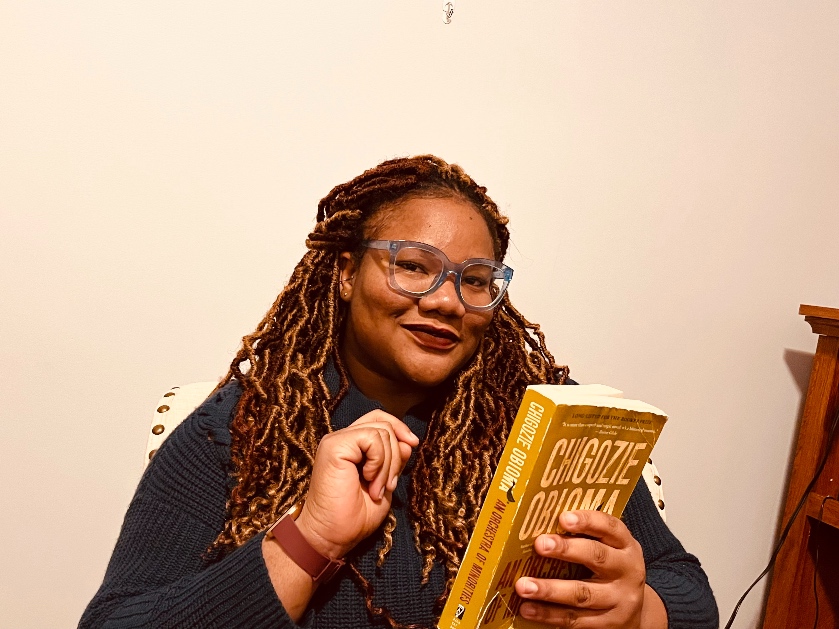
Drey’s Thoughts
Y’all! My book looks like it too went through the odyssey and it did. It took me a long time to get into this book but I was determined to finish it. I wanted to love “An Orchestra of Minorities.” Really, I truly did! I mean, it had all the elements that would capture me: Greek mythological elements, Igbo traditions highlighted, proverbs I can hear my parents saying to me, and even a tragic ending. However, it was a hard book to get into. Parts of the story dragged on and I left the book with the question: “Why?”. But I do believe that every book has its highlights and its lessons, especially books with Igbo and Greek elements.
Highlights
I love the idea of a chi narrating the story. It was a beautiful way to interweave Igbo spirituality with our way of storytelling. We love our stories within stories within stories. The way this chi got off track was both giving me life while frustrating me, reminiscent of listening to my parent’s stories.
The seamless way that Obioma taught his readers about Igbo Cosmology was amazing. It has always been a quest of mine to dive into how my ancestors saw the world and how they answered human questions. to be shown this quest in a story made me feel seen in a way that I had not known that I wanted to be seen.
The proverbs yall. The p-r-o-v-e-r-b-s. Man, when I say I enjoyed reading them! My childhood/adulthood finally clicked. My Igbo parents have always used absurd yet accurate aphorisms to teach us life lessons. I had always found it weird yet funny, but to see them in text assured me that I wasn’t weird and that my parents knew what they were doing (not to say that I didn’t think so before).
Finally, one of my favorite Greek classics is Homer’s “Odyssey.” It was the only movie that I remember actually paying attention to in high school. Throw elements of that in a story, and you can take my cash dinero any time, any day.
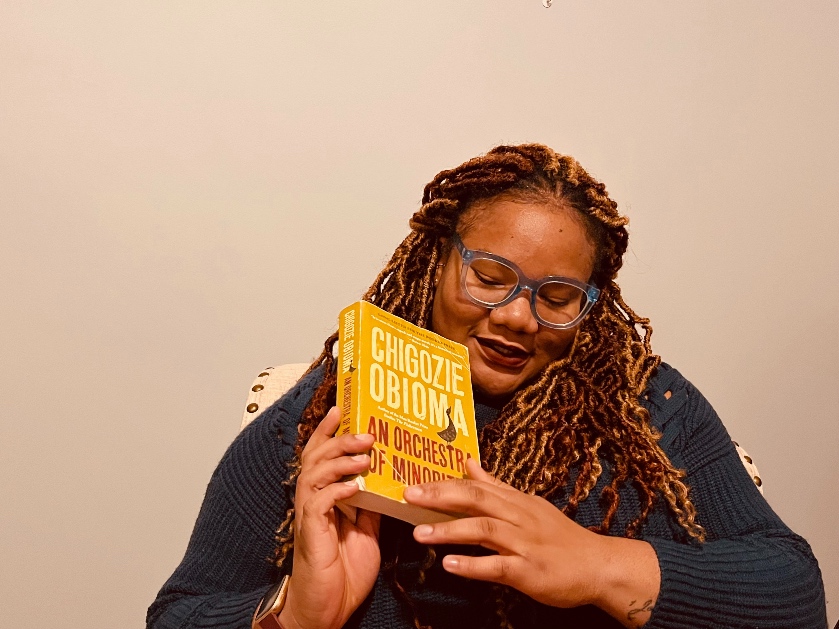
Lessons:
The biggest lesson I learned from this book is that tenacity can get you to finish a book five hours after your bedtime (at 2 AM). Haha. But in all seriousness, I learned that I had more determination than I thought I had.
The biggest lesson within the book is that we should always fact-check, quadruple-check, back-track, front-track, opportunities that may seem too good to be true, lest we fall prey to enemies of progress in sheep’s clothing.
Secondly, I know that love is great and amazing and everything in between. However, realize that your partner will also be brought into your nuclear family and if they have a problem with them; stand up for your partner. Your parents and siblings are important; however, you are going to be one flesh with them. Sometimes your partner should take precedent. If it gets to a place where your partner has to sell off everything to be with you, the situation has gone too far.
One thing I wrestle with is Chinonso’s and Ndali’s tragic end. Did they have to go out like that? It’s giving me Othello’s downfall and Desdemona’s murder. I know that many classics choose to exacerbate the lesson of the protagonist’s downfall, but Chinonso was in it. Could we not let him have this? Like how you go from saving a woman’s life to killing her by the end of 450+ pages. I mean, what is the meaning of this?!? I’m usually all for a tragic ending, but this one hurt. Maybe it was because I finished it way past my bedtime and my emotions were playing tricks on me…
“An Orchestra of Minorities” felt like home to me but just like home, it had its drawbacks. I’m not sure whether to recommend it or not simply because I really struggled to finish the book. However, I don’t regret reading it. I love Obioma’s writing style; I just wished that he picked up the pace of Chinonso’s tragic story.
If you’ve read “An Orchestra of Minorities,” let me know your thoughts in the comments below! Did you want Chinonso’s story to end with hopeful reconciliation or did you like that it ended tragically?
Stay Blessed & Stay Sippin’
Drey
Disclaimer: Though influenced by the institutions that formed me, the views expressed here are those of my own at a specific snapshot in time. I make no promises that said ideas will remain constant as I age.


